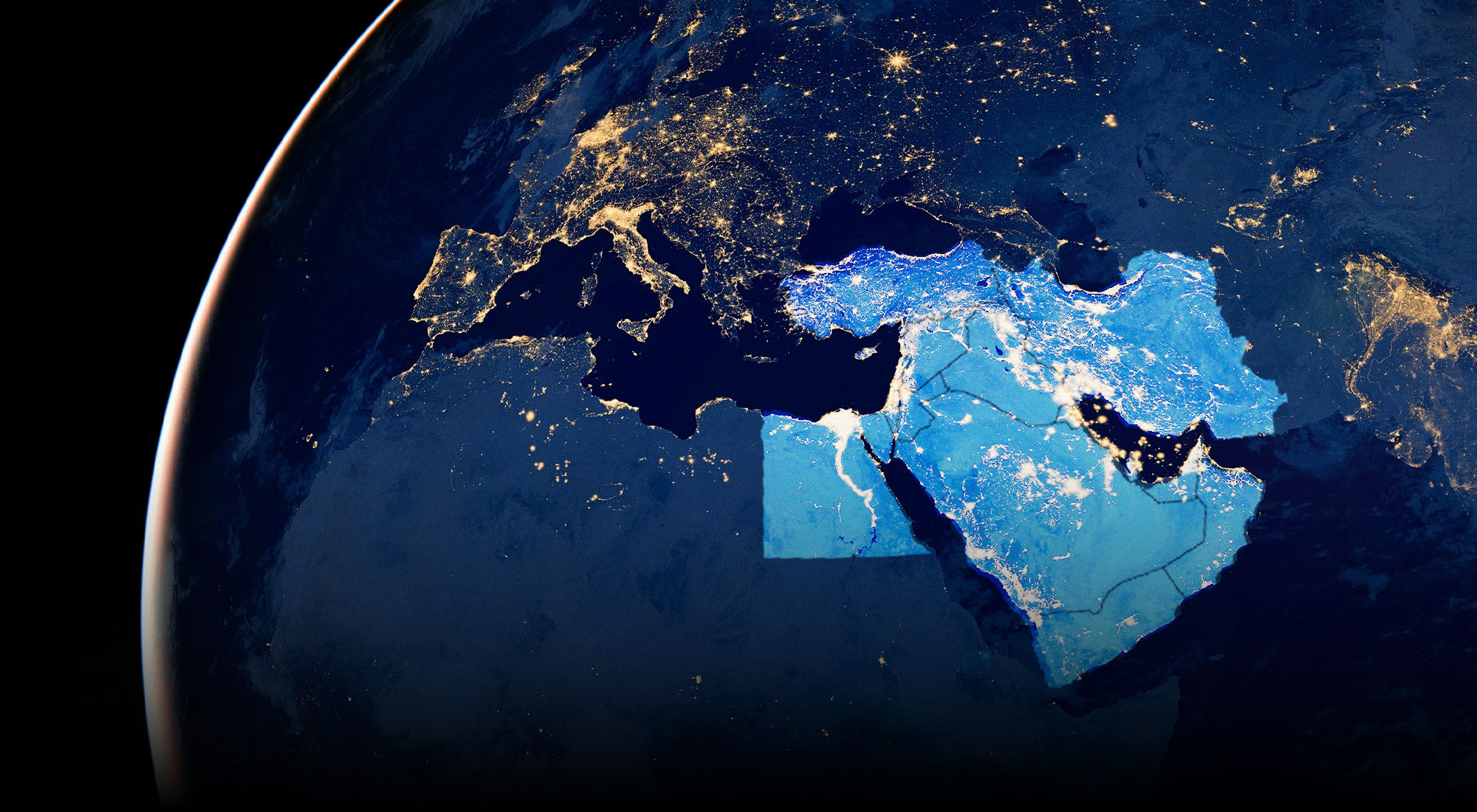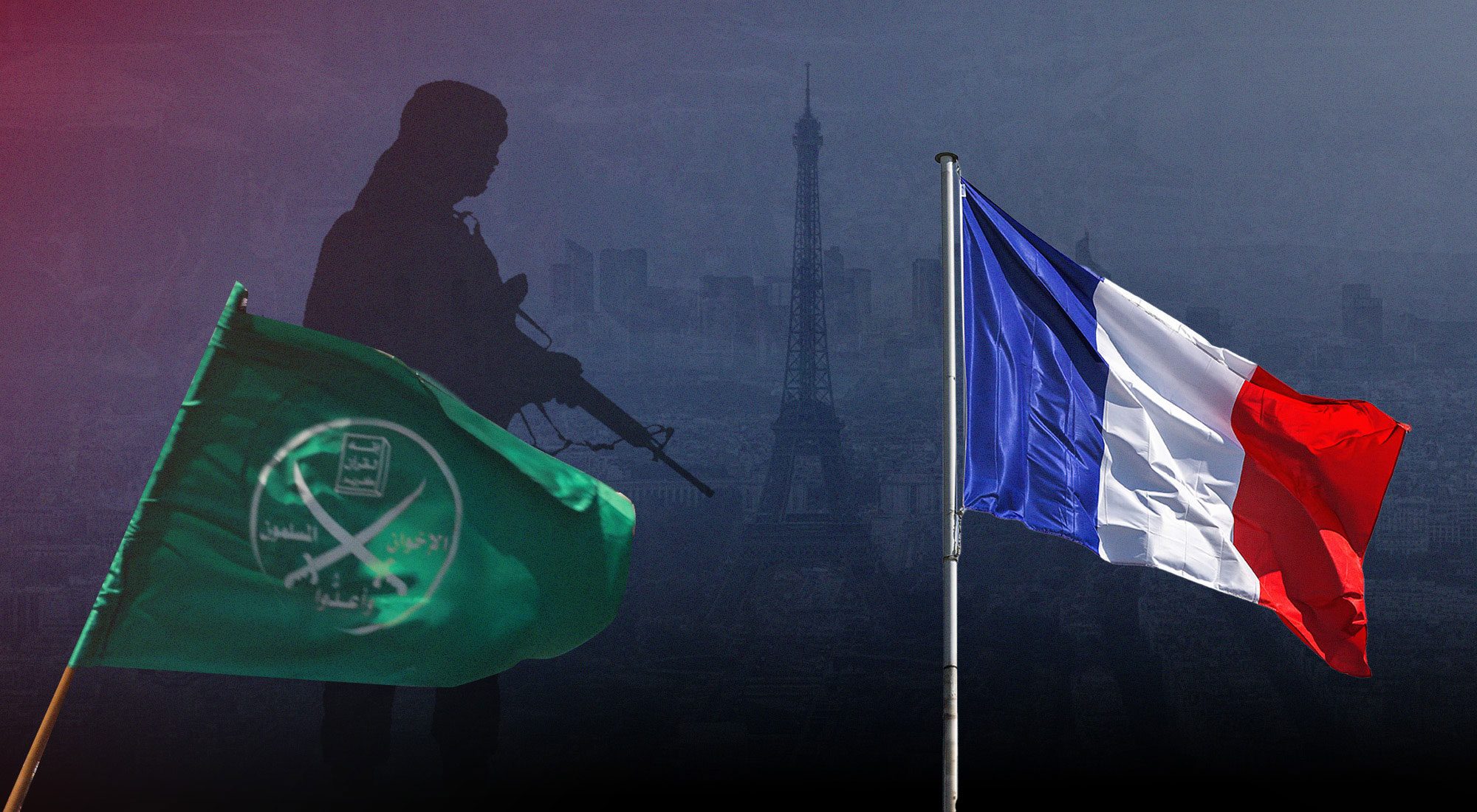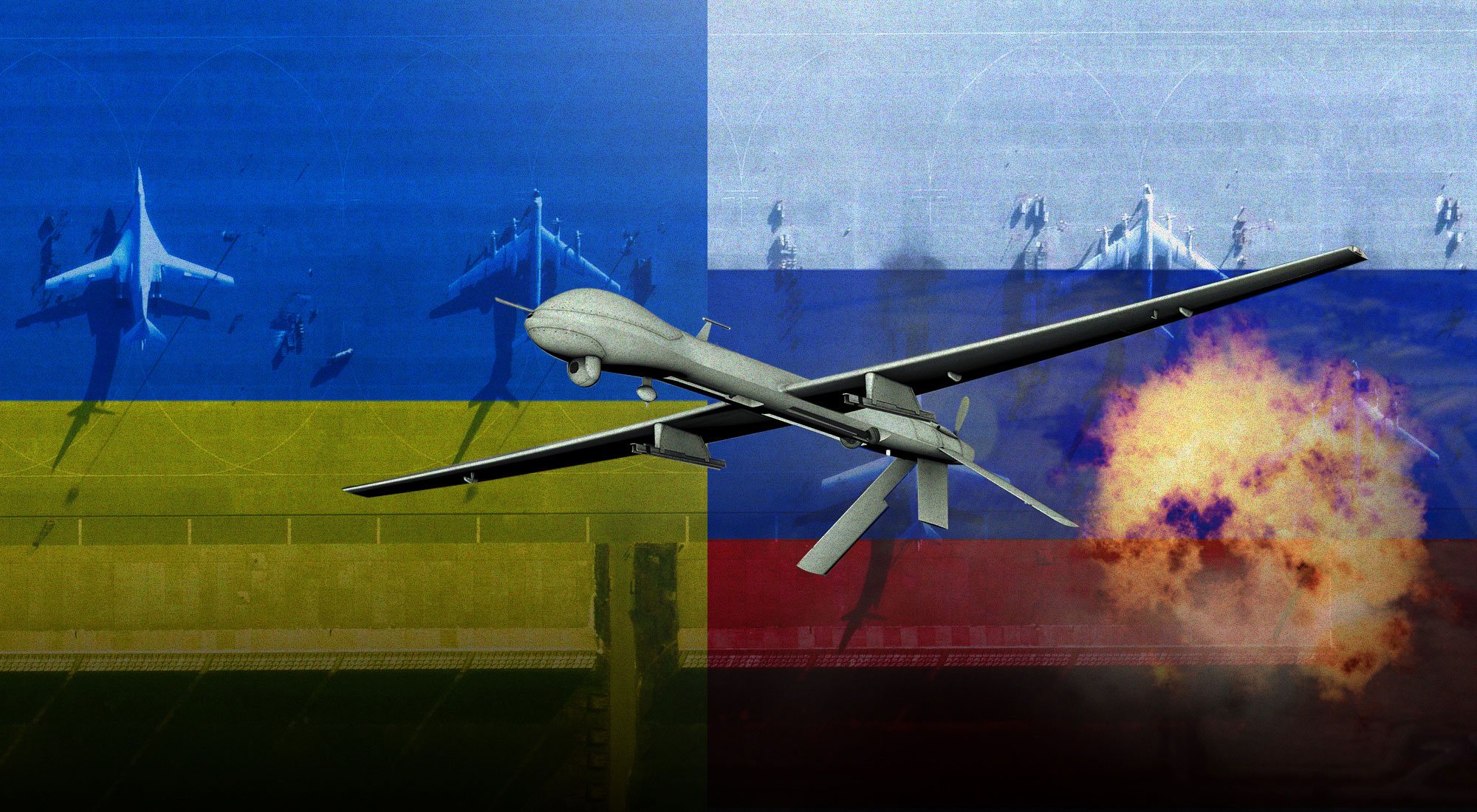Can the Kazemi government pull Iraq out of US-Iran conflict whirlpool?
The Iraqi parliament’s approval, on May 6, 2020, for the formation of a government led by Mustafa Al-Kazemi is a turning point in Iraq’s politics. The moment came after a long and arduous political debate between various political factions that were divided over how to deal with the situation in the country.
It also follows the waves of protests in the country over the past few months, which led to the resignation of the former Prime Minister, Adil Abdul-Mahdi, for his failure to deal with the situation. The formation of the new government is perhaps even more significant considering Iraq happens to be a country where the United States and Iran are in a constant state of conflict.
The most significant example of this stand-off was the killing in January 2020 of General Qassem Soleimani, the head of Iran’s Islamic Revolutionary Guard Corps, and the mutual threats that followed. The state of conflict raises several questions: Will the Kazemi government succeed in pulling Iraq out of the Washington-Tehran conflict whirlpool? What are the chances of a new round of confrontation between the two countries on the Iraqi soil?
Features of the Kazemi government
The Iraqi parliament’s approval for a government led by Mustafa Al-Kazemi (the former intelligence chief) came after a long debate. It also followed some rapid and intertwined developments in Iraq in recent months. Demonstrations swept most Iraqi cities against the deteriorating economic and living conditions and the growing Iranian influence in the country.
These protests forced former prime minister, Adel Abdul-Mahdi, to resign on December 1, 2019. He became the first head of government to leave his post before the end of his term in post-2003 Iraq. Mahdi was seen by many as the man of the hour who would lead the reconstruction of the country devastated by the war against ISIS. Yet he failed to deal with the protests in which nearly 400 people were killed within two months.1
A state of chaos unfolded in Iraq following Mahdi’s resignation. Demonstrators continued to hold up banners against the Iranian influence in the country. On the other hand, pro-Tehran Shiite militias tried to thwart these demonstrations, targeting US interests in Iraq. The Popular Mobilization Forces (PMF) launched 30 missiles at the Iraqi-US AirBase (K-1), which hosts US soldiers north of Kirkuk, killing one US civilian contractor and injuring four US soldiers.
This triggered the assassination of Qassem Soleimani in a missile attack near Baghdad Airport. The deputy head of the PMF, Abu-Mahdi al-Muhandis and other figures belonging to the Iran-backed militias were also killed in the attack.2
Days later, in retaliation, Iran fired more than 10 missiles from its soil, targeting two airbases in Erbil and Ain Al-Asad in western Baghdad. The missiles did not cause any tangible material or human losses.3 However, the retaliation indicated that Iraq is expected to witness a new wave of clashes between the US and Iran as the Iranian militias had repeatedly threatened to avenge the killing of Soleimani and Abu-Mahdi al-Muhandis.
These developments loomed large on the consultations for the formation of the Iraqi government before it came to light on May 6, 2020. There was overwhelming fear that the appointment as prime minister of a figure affiliated with Iran or even sympathetic to its positions would turn Iraq into a battleground for the US and Iran. Al-Kazemi was chosen to form the government as he was not affiliated with certain political forces. He has relations with the different segments of the Iraqi society and has adopted a neutral position toward Iran and the US.
The approval of the Iraqi parliament on May 6 marks the beginning of a new political phase in Iraq for the following reasons:
- The new Iraqi government was formed in the wake of a popular uprising with clear demands for reforms, fighting corruption, and confronting sectarianism. This government can, therefore, be considered a response to the demands of Iraqis as it is also represented by figures either from or close to the protest movement. Prime Minister Kazemi’s pledge to identify and reveal the killers of demonstrators and to bring them to justice suggests that this government has broad popular support, which strengthens it and supports the reform program.
- The Kazemi government is not under the influence of pro-Iranian militias, especially in security and military positions. Al-Kazemi has assigned the sensitive interior and defense ministries to independent officials. He also brought Staff Lieutenant General Abdul-Wahab Al-Saadi to lead the counter-terrorism agency after he was deposed by Mahdi following on the complaint of pro-Iran militias. Al-Kazemi also made the intelligence services, the army, and counter-terrorism agencies accountable to him personally. This step indicates the new government’s intentions to control the security situation and decisively confront any attempts to destabilize security and stability.
- The new government enjoys broad Arab and international support with many relying on it to meet the growing security, social, political, economic, and health challenges facing Iraq for years. This is also an opportunity for the government to distance Iraq from the axis of Iran and its sectarian project in the region. Mustafa Al-Kazemi has pledged to address the challenges facing the country on several occasions. He has emphasized on prioritizing “Iraq’s sovereignty, security, stability, and prosperity,” which is seen reference to his rejection of the growing Iranian influence in Iraq. This influence represents a threat to the country’s national security, especially since it has turned Iraq into a playground for a confrontation between Washington and Tehran, especially during the past few months.
How the US and Iran see the new Iraqi government
Since the fall of the Saddam Hussein regime in 2003, the process of forming any Iraqi government has been of interest to the US and Iran. Both countries have always competed for the representation of their interests in Iraq through the government. The general thrust of most governments in the past has been to remain balanced toward both the countries. However, these governments began to express Iranian influence, especially following the American withdrawal from Iraq in 2011, during President Obama’s tenure.4 Back then, Iran tried to strengthen the influence of the militias in Iraq and became the most influential player in the country’s security and political landscape.
Once the Iraqi parliament approved the government of Mustafa Al-Kazemi, US Secretary of State Mike Pompeo, announced that Iraq would be exempt from buying electricity from Iran for 120 days, which Iraq badly needed during the summer months. It indicates that the US is keen to help Al-Kazemi meet his domestic demands. The lack of electricity and water is one of the most complex problems facing Iraq, especially during the summer season, and it has also been one of the main reasons behind demonstrations in recent years.
The American support for the new Iraqi government is due to Al-Kazemi’s distinguished relations with the US. This relationship was strengthened during the period of cooperation in the war against ISIS and the elimination of its leader Abu Bakr Al-Baghdadi.5 That is why the US seeks to invest in this government to safeguard the US interests in Iraq and ensure that the US forces continue to operate there against any Iran-armed militias.
Iranian Foreign Minister, Mohammad Javad Zarif, also announced Iran’s support for the new Iraqi government and expressed his country’s willingness to cooperate with it. This explains why several stakeholders are counting on the possibility that the Kazemi government could re-engineer relations with Tehran, despite reservations expressed by some officials of the Revolutionary Guard and other conservative groups in Iran.
It is not unlikely that Iran’s support for the Kazemi government may be part of its dodgy tactics. Tehran has explicitly declared its support for the Iraqi government and left its domestic allies wary of policies that do not cater to their interests. Certainly, the challenges Iran faces these days, such as its dire economic situation, the outbreak of Covid-19 and the US sanctions, is forcing the country to accept the Kazemi government reluctantly even though some of its most important allies have been excluded from the new government.6
Circumstances suggest that the Kazemi government will not fall into the trap of taking sides with the US or Iran. It will build relations with them in a balanced manner as Al-Kazemi has a lot of experience in communicating with both as the head of the Iraqi intelligence agency. He is fully aware of the details including relations between the two countries.7
Challenges facing the Kazemi government
Al-Kazemi’s government faces many challenges. Some of these problems are inherited from previous governments while others are related to the consequences of the Covid-19 pandemic. Sustained fallout of the Soleimani assassination adds to this list. The government’s most important challenges include the following:
- Dismantling the pro-Iranian armed militia power base: This is significant considering they are affiliated to the Popular Mobilization Forces (PMF), whose relationship with Iraq seems ambiguous, and often poses an open challenge to the state. Some factions, that are members of the PMF, follow the dogma of Wilayat-e-Faqih (Guardianship of the Islamic jurist) in Iran. This means that they do not pledge loyalty to the Iraqi state. The continued possession of weapons by these militias enhances the possibility of an armed conflict with negative repercussions on the security and stability of Iraq.8
The ground situation indicates that the government is pursuing this goal as control over security services allows it to disarm the militias and makes them answerable to the state or the Iraqi National Army. This was evident in the government’s decision, made a few days after obtaining the approval of the parliament, to close the headquarters of Thaar Allah movement, some of whose gunmen were implicated for the killing of protestors. The movement was established in Iran in the 1980s as part of a group of armed Islamist movements formed to fight the Saddam regime during the Iraq-Iran war. This move is a strong indication of the decline of Iranian influence in Iraq and how the government will deal with various armed militias in the coming period.9 - The oil price collapse: This is causing a huge problem for the government while financing its budget and for allocating funds for health, infrastructure, services, and employment sectors. It also makes the task of distributing resources to different regions difficult, especially the Kurdistan region, which is calling for an increase in its central budget allocations.10
Declining financial resources could compel the government to take some austerity measures, such as cutting large public salaries. Such a move could be rejected by the public and renew protests calling for a regime change. There are also expectations of a 9.7 percent drop in Iraq’s GDP this year. Poverty rates may also double, according to the World Bank, making it the worst annual performance for the country since the overthrow of Saddam Hussein.11 - The Covid-19 crisis: The pandemic could be of disastrous consequences considering the significant decline in the level of health services in Iraq and the growing number of people infected with the virus. They could prove to be a double burden for the new government.
- Balancing the US, Iran relations: Keeping Iraq away from the conflict between the two countries will be a challenge considering the continuing US military presence on its soil, and in light of the demands made by Shiite militias affiliated to Tehran that the US forces must leave Iraq. The demands have been made amid suggestions that the US cannot withdraw its forces and leave Iraq at the hands of Iran once again as it considers the withdrawal in 2011 a grave mistake. A withdrawal now could lead to serious repercussions for the US interests in the Middle East in the foreseeable future.12
What makes Iraq a whirlpool of the US-Iran conflict?
Iraq is of geopolitical importance to both the US and Iran, representing one of the main pivots of the two countries’ Middle East strategy. Since the overthrow of Saddam Hussein in 2003, the US has sought to turn Iraq into a model of democracy in the Middle East. However, it has retreated from that objective after realizing that it was difficult to impose Western-style democratic models in the Middle East.
However, Iraq remains an important element of US policy in the Middle East. It plays a role in maintaining regional engagement and furthers a kind of alliance and an effective base for achieving regional transformation.13 Some observers believe that Iraq is at the core of the US strategy, especially in containing Iran’s expansionist agenda. If the new government manages to build a strong and stable Iraq, it will deter Iranian ambitions and military pressure in the Gulf region.14
At the same time, the United States’ keenness to maintain its military presence in Iraq is by no means separable from its conflict with Iran. This presence can maintain pressure on Iran and discourage any move to threaten the US or its allies’ interests in the region. The US also has a strategic interest in Iraq to face up to the efforts of Russia and China to extend its economic and political influence in the country. The two countries seek to strengthen their presence in Iraq and, for this reason, it is in the interest of the US to maintain its political and military influence in the country.15
Iraq is of strategic as well as economic importance for Iran. Baghdad’s geopolitical position, its role in strengthening the Arab power, and in striking regional balance with Iran, have pushed Tehran to enhance its influence in the country.16 Iraq represents the foundation of Iran’s Shiite crescent project through which it seeks to strengthen its dominance in the region using sectarian agenda.17 Control over Iraq serves the objective of Iran’s regional strategy, particularly related to the construction of a land bridge between Iran and Lebanon. Iraq is the most important pillar of this strategy and contributes toward securing its position against potential regional rivals.18
Moreover, Iran’s desire to enhance its influence in Iraq is not separate from its conflict with the US. It seeks to preserve its sphere of influence in Iraq so that it can exert pressure on the US and threaten its interests in the region. This explains Iran’s interference in the formation of governments in Iraq over the years. Iran has often used Shiite militias as leverage to bargain with the US, especially concerning the US military presence in Iraq. Following the assassination of Soleimani, Iran incited its affiliated militias to pressure the Iraqi government to ensure an end to the US military presence there.19
It can be argued that over the past few years Iraq has turned into a battleground for conflict between the US and Iran. It was hence natural during the process of formation of the new Iraqi government to raise many questions about the nature of its relations with each of them, and in whose camp the government would be.20
Will this end the US-Iran conflict in Iraq?
Mustafa Al-Kazemi has made Iraq’s “sovereignty, security, stability, and prosperity” a top priority for his government. He has pledged to take measures to achieve that goal and announced his rejection of the “use of Iraq as an arena for hostilities”. This was a clear reference to the public conflict between the US and Iran following Soleimani’s killing. However, his ability to maintain Iraq’s neutrality and pull it out of this conflict is still controversial as it continues to be controlled by Iraq’s internal complexities and many conflicting international interests.
It is difficult for the Kazemi government to break the conflict-cycle between Washington and Tehran considering the strong opposition of some Shiite militias to the government, such as the Iraqi Hezbollah, which has rejected the government. They even accused Al-Kazemi of helping the US forces assassinate Soleimani and Abu-Mahdi al-Muhandis during his tenure in the intelligence services.
These militias believe that holding the position of the prime minister cannot absolve Al-Kazemi of his complicity in the crime. They maintain that those implicated in Soleimani’s murder must be pursued regardless of their job description.21 Based on its relations with previous governments, Iran used to employ armed militias to protect its interests using them as a bargaining chip against the US.
Another view is that the Kazemi government can keep Iraq neutral in this conflict considering the following reasons:
- President Barham Salih’s support for Al-Kazemi as part of Iraq’s collective decision-making is also an important development. It is also believed that Salih supported Al-Kazemi as prime minister. Saleh blocked his rivals, most notably the strong Shiite pro-PMF-Fatah Alliance nominee and Basra governor, Asaad Al Eidani, who is hated by protesters.22 Such an agreement between Salih and Al-Kazemi would give a strong push to the government in implementing its agenda.
- According to another point of view, Mustafa Al-Kazemi’s selection to form the Iraqi government was the result of the tacit agreement between Washington and Tehran as a compromise at this stage. This is why he received the support of the two countries, which played a role in facilitating consultations for the formation of the government and removing obstacles that were preventing it from coming to fruition. For example, the US convinced the Kurds to drop their candidate to run the ministry of finance.23
- Al-Kazemi’s ability to build consensus is a departure from the zero-sum approach and has the potential to reshape Iraq’s relations with Washington and Tehran. He could send a message to both the countries that he would strive to preserve their strategic interests in Iraq. This would bypass the Iraqi parliament’s calls for expelling the US troops. Al-Kazemi, however, is unlikely to take on Iranian influence at this stage or anger the Shiite forces defending him as he would not like to get into a conflict that may cost his job. Therefore, he will seek a balance in relations between Washington and Tehran to ensure that they do not engage in any new confrontation on the Iraqi soil.24
Conclusion
Despite major challenges, the Kazemi government has an opportunity to preserve the sovereignty of Iraq and keep it detached from the US-Iranian conflict. This argument can be substantiated based on these two factors:
- First: Full-fledged support at home, except for some Shiite forces, for Al-Kazemi’s strategy to curb Iran’s influence and disarming militias allied to Tehran.
- Second: The desire of the US and Iran to defuse tensions in a phased manner, for considerations specific to each of them. President Trump, who is seeking re-election in November, cannot be dragged into a new confrontation with Iran at this stage when he is being criticized for his mismanagement of the Covid-19 pandemic. Iran has also chosen not to escalate matters as the assassination of Soleimani has made it realize that the US is taking its threats seriously. Hence, it will prefer to avoid escalation and would want to focus on the domestic challenges, particularly the economic, and the Covid-19 crisis.
Notes:
1- Iraq: Parliament Approves New Government Under Kadhimi, France 24, May 07, 2020: https://bit.ly/3cQK5OB
2- Iran’s Quds Force Commander Killed in US Strike in Baghdad, BBC, January 03, 2020: https://bbc.in/2Xl6YDk
3- Qasem Soleimani Killed: Iran Targets US Forces in Iraq with Missile Attacks, BBC, January 08, 2020: https://bbc.in/2Tqo2H2
4- Mohamad Kawas, Iraq after the Formation of Al-Kadhimi’s Government: Opportunities and Expectations, Emirates Policy Center, Abu Dhabi, May 13, 2020: https://bit.ly/2ZjIeOF
5- France 24, Iraq: Parliament Approves New Government Under Kadhimi, Ibid.
6- Kheir Allah Kheir Allah, Al-Kazemi and the Relative Retreat of Iran, Al Arabiya, May 11, 2020: https://bit.ly/3gcpKFw
7- Al-Kadhimi’s Government and the Future of American-Iranian Escalation in Iraq, Future Center for Advanced Researches & Studies, Abu Dhabi, April 09, 2020: https://bit.ly/3g66j1g
8- The “Uncontrolled” Weapons Issue Surfaces on the Iraqi Scene… Al-Kadhimi vs. Militias, EREM News, April 22, 2020: https://bit.ly/3bMwlTR
9- Eli Lake, Iran Is Losing Its Grip in Iraq, Bloomberg, May 10, 2020, https://bit.ly/2ylMO3P
10- Dr. Ahmed Sayed Ahmed, “Iraq… Challenges Haunting Al-Kadhimi’s Government”, Al Khaleej (Sharjah), April 30, 2020.
11- Al-Kadhimi’s Government… A Heavy Legacy and Cumulative Challenges, Al Hurra (Washington), May 07, 2020: https://arbne.ws/2Zntcay
12- Anthony Cordesman, Munqith Dagher, Karl Kaltenthaler, A U.S.-Iraq Strategic Dialogue: A Question of Interests and Expectations, The Washington Institute for Near East Policy, May 14, 2020, https://bit.ly/2ZwnMdk
13- Dr. Khedr Abbas, US Iraqi Strategy… a Future Outlook, Alkhaleej Affairs, Issue 49, Spring of 2007, p. 23.
14- Anthony Cordesman, Munqith Dagher, Karl Kaltenthaler, op.cit.
15- Ibid
16- Iran-Arab Relations: Entanglements of Politics, Religion, History and Geography, Nation Shield, (Abu Dhabi), July 09, 2015: https://bit.ly/2WSSw6N
17- For more information on the nature and objectives of Iranian infiltration into Iraq, please refer to “Iranian Incursion and Endless Conflicts in Iraq”, International Institute for Iranian Studies, June 22, 2016: https://bit.ly/2ypp3YE
18- Anthony Cordesman, Munqith Dagher, Karl Kaltenthaler, op.cit.
19- Ilan Goldenberg, Will Iran’s Response to the Soleimani Strike Lead to War?, Foreign Affairs, January 3, 2020. https://fam.ag/379UZvb
20- Will Iraq Turn into a Battleground Between America and Iran? – BBC, December 31, 2019: https://bbc.in/36dBLGq
21- Iraq… Al-Kadhimi’s Government Receives Large-scale Domestic and Foreign Support, Al Arabiya, May 08, 0202: https://bit.ly/3gehbKL
22- Will Al-Kadhimi Pull off the Gradual Reform Adventure? Al Arab (London), May 21, 2020: https://bit.ly/3g2Dxi9
23- Mohamad Kawas, Iraq after the Formation of Al-Kadhimi’s Government: Opportunities and Expectations, Ibid.
24- Ibid.








